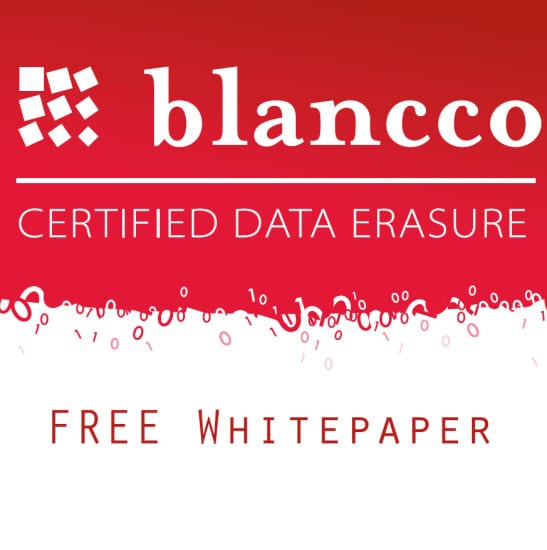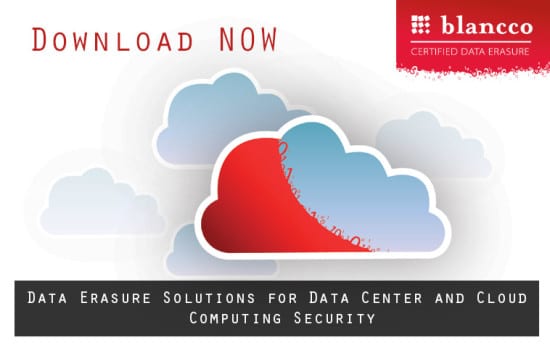Ongoing regulatory, consolidation, environmental and cloud computing developments mean that data centers need reliable, fast and flexible tools like certified data erasure to secure growing amounts of customer data. Data centers are complex hardware environments, with equally complex data erasure needs. Certified data erasure addresses these needs with automated data removal for a variety of scenarios, from targeted erasure of files for PCI DSS purposes to removal of data from logical units, servers, loose drives and storage arrays.
By removing all information and providing auditable proof of data removal at vulnerable hardware transition points, certified data erasure offers data centers the ability to:
• Answer demands for sustainable data center operations through equipment reuse.
• Attract customers in regulated industries like retail, healthcare and finance.
• Create a secure and cost-effective cloud computing environment with sound data removal processes.
• Develop additional revenue streams with safe remarketing of equipment.
• Maximize use of assets internally through secure reassignment of hardware.
• Respond to consolidation requirements with safe equipment transition processes.
This white paper explores major industry trends impacting data centers, with direct implications for the necessity of certified data erasure. It also describes certified data erasure solutions for a variety of mass storage hardware and configurations commonly found in data centers and cloud computing infrastructures.
About Blancco
 Blancco is the global leader in data erasure and computer reuse solutions. With millions of users on every continent, we are the preferred erasure choice of military, defense, police, banking and IT asset reseller organizations around the world. Founded in 1997, we offer the most certified data erasure solutions in the industry. With headquarters in Finland, Blancco operates from an extensive network of 16 international offices and partners across Europe, North America, the Middle East, Russia, Asia and Australasia.
Blancco is the global leader in data erasure and computer reuse solutions. With millions of users on every continent, we are the preferred erasure choice of military, defense, police, banking and IT asset reseller organizations around the world. Founded in 1997, we offer the most certified data erasure solutions in the industry. With headquarters in Finland, Blancco operates from an extensive network of 16 international offices and partners across Europe, North America, the Middle East, Russia, Asia and Australasia.
The opinions expressed in this post belongs to the individual contributors and do not necessarily reflect the views of Information Security Buzz.




